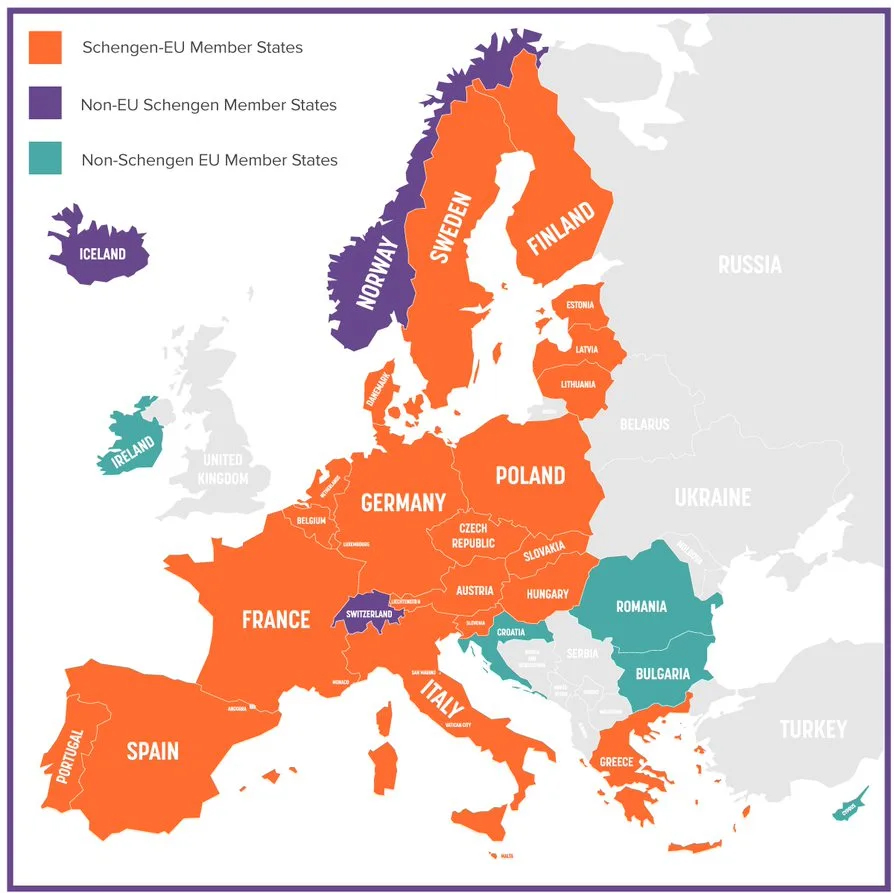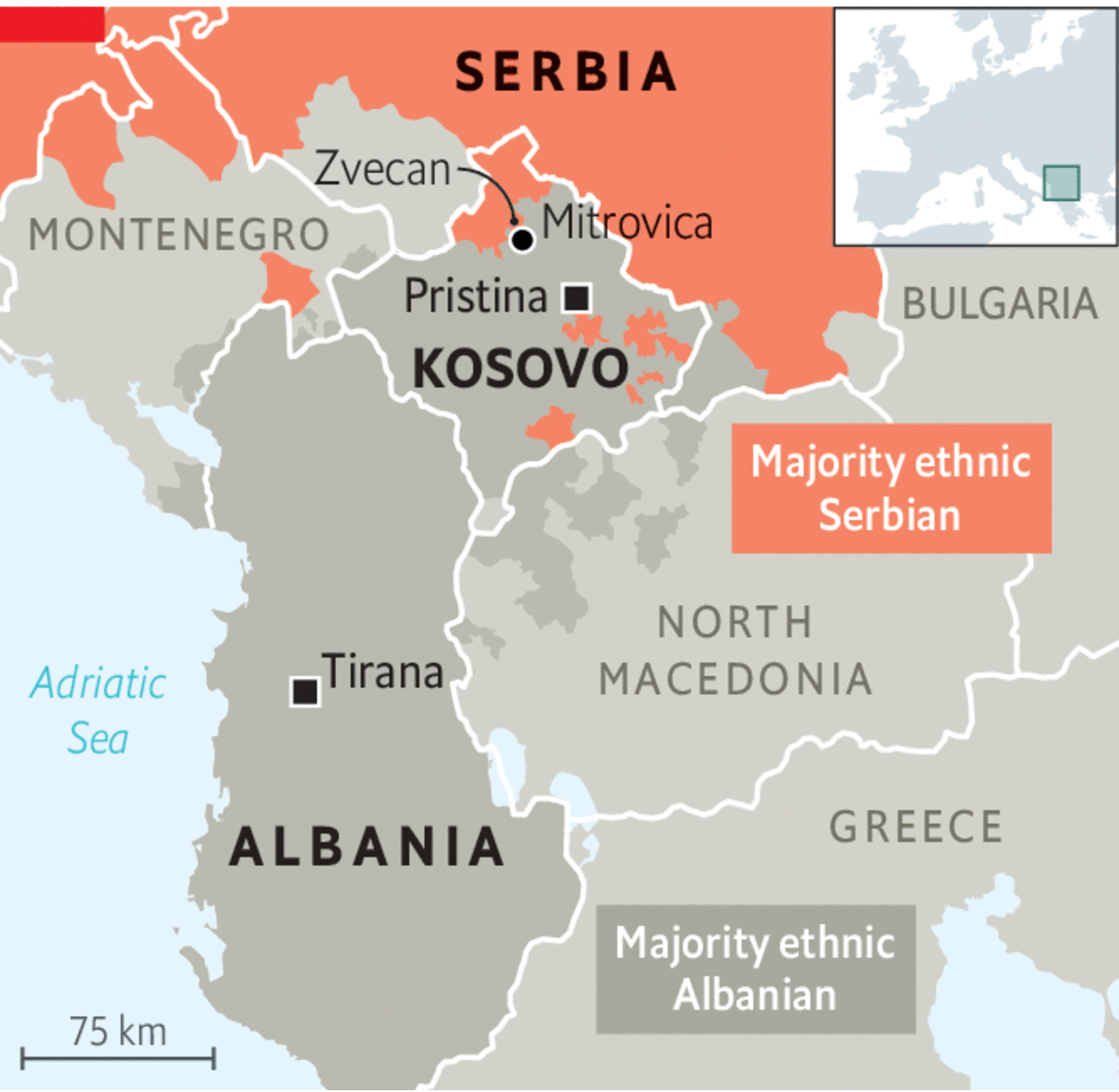Schengen Zone | 19 Feb 2024
Why in News?
Recently, Kosovo achieved a significant milestone after facing delays in Schengen approval. It has secured visa-free access to the Schengen zone, the world’s largest area of free movement.
- Kosovo becomes the last non-European Union (EU) country in the Western Balkans to enjoy this privilege.
What is the Schengen Zone?
- About:
- The Schengen Agreement is a treaty signed in 1985 by five member states (Belgium, France, Germany, Luxembourg, and the Netherlands) of the European Economic Community.
- The agreement aims to create a border-free area in Europe that allows the free movement of people, goods, services, and capital called the Schengen Area, where internal border checks are largely abolished.
- All EU member states without opt-outs must join Schengen upon meeting technical requirements.
- Non-EU countries like Switzerland, Liechtenstein, Norway, and Iceland are part of Schengen through special association agreements.
- Over time, the Schengen area has grown to encompass 27 countries, spanning over 4 million square kilometres and hosting nearly 420 million inhabitants.
- The Schengen Agreement is a treaty signed in 1985 by five member states (Belgium, France, Germany, Luxembourg, and the Netherlands) of the European Economic Community.
- Benefits of Schengen:
- Schengen enables seamless travel for over 400 million individuals across member states without border checks.
- Facilitates approximately 1.25 billion journeys annually, fostering tourism, cultural exchange, and economic prosperity.
- Schengen promotes cooperation among police, customs, and border control authorities to combat terrorism and organized crime.
- For nationals of Schengen countries, visa-free travel and the absence of internal border checks enhance convenience and facilitate economic integration.
- Schengen's border-free regime symbolises European values of unity and solidarity.
Key Facts About Kosovo
- Kosovo, which has a majority Albanian population and a minority of Serbs, is a landlocked region bordered by Albania, Macedonia, Serbia, and Montenegro.
- Its capital and largest city is Pristina.
- According to the World Bank, Kosovo is a parliamentary republic and upper-middle-income country. It declared independence from Serbia on 17th February 2008 and is recognised as an independent country by more than 100 United Nations members.
- India, Brazil, China, Russia, and Mexico have not recognised Kosovo as an independent country.
- However, Serbia does not recognize Kosovo as an independent state and continues to claim it as the Autonomous Province of Kosovo and Metohija.
Read more: Kosovo-Serbia Conflict
UPSC Civil Services Examination, Previous Year Question (PYQ)
Q. Consider the following pairs : (2023)
Regions often Reason for being in news mentioned in news
- North Kivu and Ituri : War between Armenia and Azerbaijan
- Nagorno-Karabakh: Insurgency in Mozambique
- Kherson and Zaporizhzhia: Dispute between Israel and Lebanon
How many of the above pairs are correctly matched?
(a) Only one
(b) Only two
(c) All three
(d) None
Ans: (d)
Exp:
- Kivu and Ituri are related to the Republic of Congo. A war between the Republic of Congo and Rwanda started in 1994 with the genocide of 800,000 Rwandan Tutsis and Hutus. Hence, pair 1 is NOT correctly matched.
- Nagorno-Karabakh is a region of southwestern Azerbaijan. It is used to refer to an autonomous oblast (province) of the former Azerbaijan Soviet Socialist Republic (S.S.R.) and to the Republic of Nagorno-Karabakh, a self-declared country whose independence is not internationally recognized. The old autonomous region occupied an area of about 1,700 square miles (4,400 square km), while the forces of the self-proclaimed Republic of Nagorno-Karabakh presently occupy some 2,700 square miles (7,000 square km). Hence, pair 2 is NOT correctly matched.
- Kherson and Zaporizhzhia are related to Ukraine and they are related to the dispute between Ukraine and Russia. Hence, pair 3 is NOT correctly matched.


